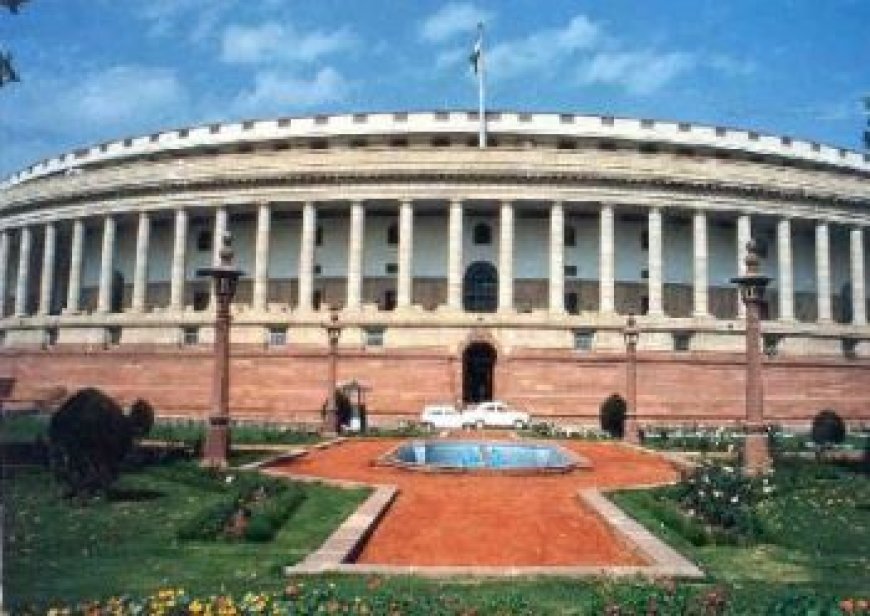INC-OGNITO: FROSTY SUSPENSIONS DURING THE WINTER SESSION OF THE PARLIAMENT
During the winter session of Parliament, 143 opposition members, including those from Congress and the INDIA Alliance, were suspended until December 20th due to protests over the December 13 Parliament security breach. This move by the ruling government has sparked controversy, seen as an authoritarian attempt to silence opposition voices. The suspension, violating freedom of speech, occurred alongside the passing of significant bills like the Telecommunications Bill and Jammu and Kashmir Reservation (Amendment) Bill, ignoring diverse viewpoints. This suppression undermines democracy, as it limits debate and transparency, showcasing the government's aversion to dissent. This authoritarian stance threatens democratic values, emphasizing the need for a robust opposition and checks on power.

The suspension of 143 opposition members from the Lok Sabha and Rajya Sabha until December 20th 2023 following protests in both houses over the December 13 Parliament security breach, has caused a political firestorm. The suspension of mass MPs, primarily from the opposition parties of Congress and the INDIA Alliance, during the winter session of Parliament is an authoritarian move by the ruling government. This excessive use of power to curb opposition reflects intolerance and insecurity, as the public did not vote for their representatives to be muted. The suspension of MPs is a violation of freedom of speech and expression, reflecting the government's unwillingness to be transparent and answerable. Several significant bills were introduced during the session, including the Telecommunications Bill, the Jammu and Kashmir Reservation (Amendment) Bill, the Bharatiya Nyaya (Second) Sanhita, the Bharatiya Nagarik Suraksha (Second) Sanhita, and the Bharatiya Sakshya (Second) Bill. The fact that this legislation was passed when numerous opposition MPs were suspended shows a disregard for India's diverse regional viewpoints. This looks to be a planned event intended to suppress the opposition and expedite legislative proceedings, completely disregarding the views of regional and opposition parties.
The following list illustrates the extent of the suspensions: the largest opposition party, the Indian National Congress, with 40 Lok Sabha members and 18 Rajya Sabha members; the Janata Dal (United) party (JDU), with 8 Lok Sabha members and 2 Rajya Sabha members; the Dravida Munnetra Kazhagam (DMK), with 16 Lok Sabha members and 8 Rajya Sabha members; and the Trinamool Congress (TMC), with 13 Lok Sabha members and 8 Rajya Sabha members.
The people's representatives have been reduced to puppets, while the ruling dispensation has become the grand inquisitor. “In Lok Sabha, a total of 27 Questions are deleted, in Rajya Sabha, 44 Questions are canceled. The Government manages to escape answering these Qs. It must be remembered that MPs submitted notices of these Questions much before their suspension (the notice period for a Q is 15 days).” The silencing of MPs not only undermines the democratic process but also decreases trust between the government and its citizens. By suppressing opposing voices, the government sends a message that it is not interested in hearing differing opinions or engaging in meaningful dialogue. This authoritarian approach sets a dangerous example and threatens the very foundation of democracy. The government must rethink its actions and respect the fundamental rights of elected representatives to ensure a healthy and vibrant democracy for all. The silencing of MPs can have far-reaching consequences, as it not only suppresses the voices of those elected to represent the people but also limits the diversity of perspectives and ideas crucial for effective governance. Important issues may go unaddressed without open and robust debate, and decisions may be made without considering all relevant viewpoints. It is essential that governments prioritize the protection of free speech and actively promote an environment where all elected representatives feel empowered to express their opinions without fear of retribution. By encouraging open dialogue and respecting different opinions, governments can ensure that the concerns and needs of all citizens are heard and taken into account. However, the BJP government in India has been criticized for its tendency to dismiss and suppress opposing voices, raising concerns about the suppression of democratic values and principles. This raises serious questions about the government's commitment to transparency and accountability. It also highlights the need for a powerful opposition and checks and balances in a democracy.
- Aditya Alia
What's Your Reaction?





























